
John Hoyer Updike was an American novelist, poet, short-story writer, art critic, and literary critic. One of only four writers to win the Pulitzer Prize for Fiction more than once, Updike published more than twenty novels, more than a dozen short-story collections, as well as poetry, art and literary criticism and children's books during his career.

The Pulitzer Prize for Fiction is one of the seven American Pulitzer Prizes that are annually awarded for Letters, Drama, and Music. It recognizes distinguished fiction by an American author, preferably dealing with American life, published during the preceding calendar year.

The Accidental Tourist is a 1985 novel by Anne Tyler that was a finalist for the Pulitzer Prize and won the National Book Critics Circle Award for Fiction in 1985 and the Ambassador Book Award for Fiction in 1986. The novel was adapted into a 1988 award-winning film starring William Hurt, Kathleen Turner, and Geena Davis, for which Davis won an Academy Award.

American literature is literature written or produced in the United States of America and in the colonies that preceded it. The American literary tradition thus is part of the broader tradition of English-language literature, but also includes literature of other traditions produced in the United States and in other immigrant languages. Furthermore, a rich tradition of oral storytelling exists amongst Native Americans.

Pearl Krabs is a fictional character in the Nickelodeon animated television series SpongeBob SquarePants. She is voiced by actress Lori Alan and first appeared in the season one episode "Squeaky Boots" on September 4, 1999. She was created by marine biologist and animator Stephen Hillenburg, who was inspired to design a whale character while supervising whale watches at the Ocean Institute in Dana Point, California.

John William Cheever was an American short story writer and novelist. He is sometimes called "the Chekhov of the suburbs". His fiction is mostly set in the Upper East Side of Manhattan; the Westchester suburbs; old New England villages based on various South Shore towns around Quincy, Massachusetts, where he was born; and Italy, especially Rome. His short stories included "The Enormous Radio", "Goodbye, My Brother", "The Five-Forty-Eight", "The Country Husband", and "The Swimmer", and he also wrote five novels: The Wapshot Chronicle , The Wapshot Scandal, Bullet Park (1969), Falconer (1977) and a novella Oh What a Paradise It Seems (1982).

Capitol is an American soap opera which aired on CBS from March 29, 1982, to March 20, 1987, for 1,270 episodes. As its name suggests, the storyline usually revolved around the political intrigues of people whose lives are intertwined in Washington, D.C.
Anne Tyler is an American novelist, short story writer, and literary critic. She has published twenty-four novels, including Dinner at the Homesick Restaurant (1982), The Accidental Tourist (1985), and Breathing Lessons (1988). All three were finalists for the Pulitzer Prize for Fiction, and Breathing Lessons won the prize in 1989. She has also won the Janet Heidinger Kafka Prize, the Ambassador Book Award, and the National Book Critics Circle Award. In 2012 she was awarded The Sunday Times Award for Literary Excellence. Tyler's twentieth novel, A Spool of Blue Thread, was shortlisted for the Man Booker Prize in 2015, and Redhead By the Side of the Road was longlisted for the same award in 2020. She is recognized for her fully developed characters, her "brilliantly imagined and absolutely accurate detail", her "rigorous and artful style", and her "astute and open language."

Rabbit at Rest is a 1990 novel by John Updike. It is the fourth and final novel in a tetralogy, succeeding Rabbit, Run; Rabbit Redux; and Rabbit Is Rich. A related novella, Rabbit Remembered, was published in 2001. Rabbit at Rest won the Pulitzer Prize for Fiction in 1991, the second "Rabbit" novel to garner that award.

Rabbit Is Rich is a 1981 novel by John Updike. It is the third novel of the tetralogy that begins with Rabbit, Run, continues with Rabbit Redux, and concludes with Rabbit at Rest. There is also a related novella, Rabbit Remembered (2001). Rabbit Is Rich was awarded the Pulitzer Prize for Fiction and the National Book Award for Fiction in 1982, as well as the National Book Critics Circle Award for Fiction in 1981. The first-edition hardcover "rainbow" dust jacket for the novel was designed by the author and is significantly different from the horizontal-stripe designs deployed on the other three Rabbit novel covers. Subsequent printings, however, including trade paperbacks, feature the stripe motif with stock images of a set of car keys or an image of a late-1970s Japanese automobile.

Breathing Lessons is a Pulitzer Prize–winning 1988 novel by American author Anne Tyler. It is her eleventh novel and won the 1989 Pulitzer Prize for Fiction.

Alfred A. Knopf, Inc. is an American publishing house that was founded by Alfred A. Knopf Sr. and Blanche Knopf in 1915. Blanche and Alfred traveled abroad regularly and were known for publishing European, Asian, and Latin American writers in addition to leading American literary trends. It was acquired by Random House in 1960, and is now part of the Knopf Doubleday Publishing Group division of Penguin Random House which is owned by the German conglomerate Bertelsmann. The Knopf publishing house is associated with its borzoi colophon, which was designed by co-founder Blanche Knopf in 1925.
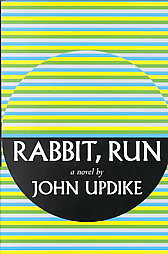
Rabbit, Run is a 1960 novel by John Updike. The novel depicts three months in the life of a 26-year-old former high school basketball player named Harry "Rabbit" Angstrom who is trapped in a loveless marriage and a boring sales job, and his attempts to escape the constraints of his life. It spawned several sequels, including Rabbit Redux, Rabbit is Rich and Rabbit at Rest, as well as a related 2001 novella, Rabbit Remembered. In these novels, Updike takes a comical and retrospective look at the relentless questing life of Rabbit against the background of the major events of the latter half of the 20th century.
"Sentimental Education" is the 58th episode of the HBO original series The Sopranos and the sixth of the show's fifth season. Written by Matthew Weiner and directed by Peter Bogdanovich, it originally aired on April 11, 2004.
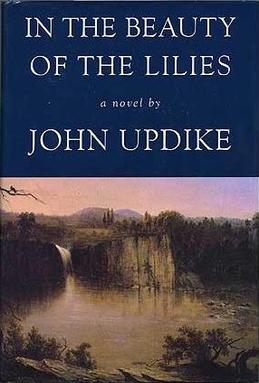
In the Beauty of the Lilies is a 1996 novel by John Updike. It takes its title from a line of the abolitionist song "The Battle Hymn of the Republic." The novel received the 1997 Ambassador Book Award for Fiction.
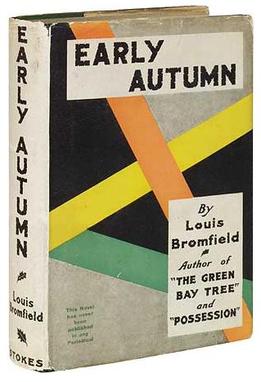
Early Autumn is a 1926 novel by Louis Bromfield. It won the Pulitzer Prize for the Novel in 1927. In 1956, producer Benedict Bogeaus announced that he was adapting the book into a film to be titled "Conquest," but the film was never made.
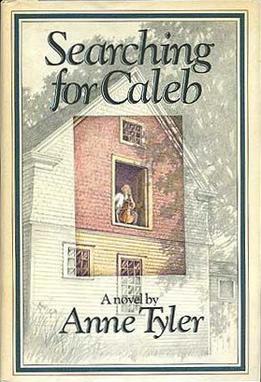
Searching for Caleb is Anne Tyler's sixth novel. It was originally published by Alfred A. Knopf in 1975.

Carol Sklenicka is an American biographer and literary scholar known for her authoritative, full-scale biographies of two important figures in late twentieth-century American literature: acclaimed short story masters Raymond Carver and Alice Adams.

Earthly Possessions is a 1977 novel by Anne Tyler. This, Tyler's seventh novel, followed Celestial Navigation and Searching for Caleb and preceded her award-winning novels Morgan's Passing, Dinner at the Homesick Restaurant, The Accidental Tourist, and Breathing Lessons.
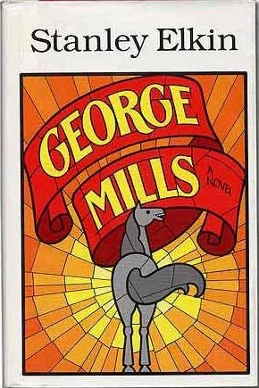
George Mills is a 1982 novel by American author Stanley Elkin, published by E. P. Dutton. The novel, set in five parts, tells the family history of succeeding generations of characters named George Mills. The story covers more than 1,000 years from the First Crusade in Europe to the Ottoman Empire to present-day America. Elkin won the 1982 National Book Critics Circle Award in the fiction category for the novel. Elkin mentioned George Mills as one of his favorite novels. The novel is considered Elkin's "longest and most complexly organized work".















